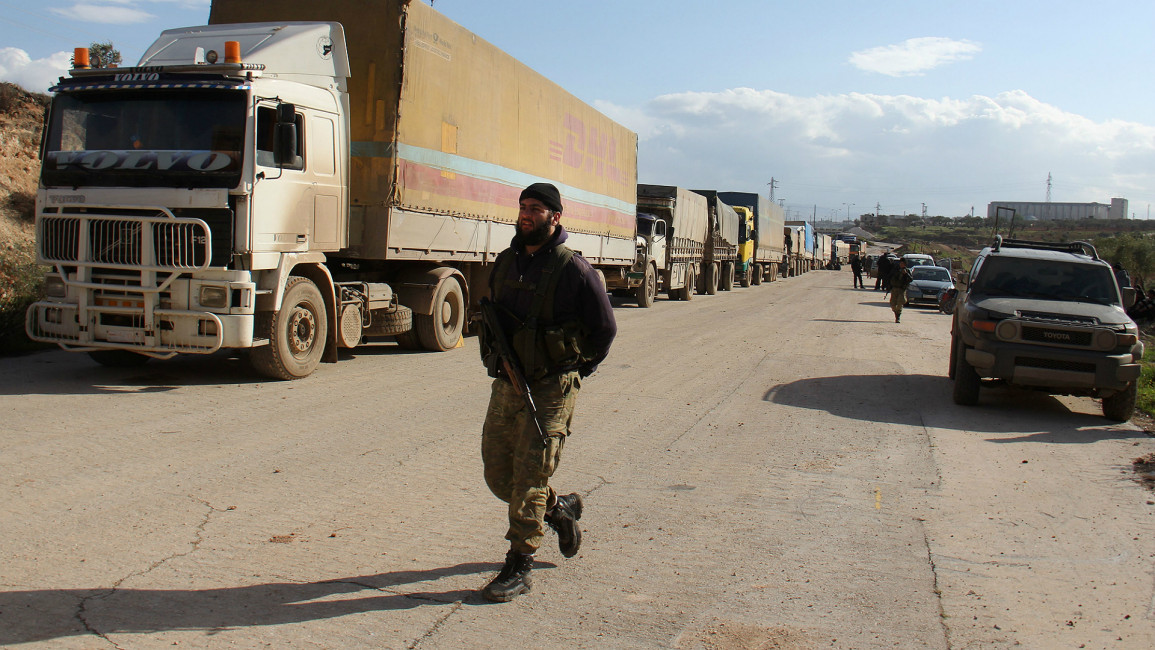Evacuation of four besieged Syria towns 'delayed'
Under the agreement, more than 30,000 people from the towns of Fuaa, Kafraya, Madaya and Zabadani were scheduled to be evacuated on Tuesday.
The deal was brokered by rebel supporter Qatar and regime ally Iran.
"There are currently no indications that the plan to evacuate the families and fighters from Madaya and Zabadani will go ahead," local activists told The New Arab.
Locals in all four towns had expressed strong reservations about the evacuations.
"No one is happy to leave their homes, but hunger and the daily threat of death is forcing locals to accept the deal," activist Abu al-Muhajer al-Shami from Zabadani told The New Arab.
Britain-based Syrian Observatory for Human Rights chief Rami Abdel Rahman said many civilians want to stay, adding that negotiations were still ongoing about the status of Madaya and Zabadani after the evacuation.
"The issue is whether the civilians will leave, because some want to stay, and whether the regime forces will enter Madaya and Zabadani in full," he told AFP.
The Observatory said if the agreement goes ahead, the evacuations are likely to take place on Thursday or Sunday.
But local activists said that remains unclear.
"The information we have right now is based on mere rumours as both parties to the agreement have not made any official statements," al-Shami told The New Arab.
The Syrian regime has negotiated a series of "reconciliation deals" with formerly rebel-held towns, offering fighters safe passage in exchange for surrender.
In some cases army troops enter the areas after the deal is implemented, but in others the regime flag has simply been raised and administrative control resumed.
The four towns are part of an existing deal reached in 2015 that has seen simultaneous evacuations and aid deliveries, the last of which took place in November.
But the aid has proved insufficient, with reports of malnutrition and deaths from lack of food and medical care in the towns.
At least 600,000 people are living under siege in Syria, according to the United Nations, with another four million people in so-called "hard-to-reach" areas.
The Syrian conflict began when the Baath regime, in power since 1963 and led by President Bashar al-Assad, responded with military force to peaceful protests demanding democratic reforms during the Arab Spring wave of uprisings, triggering an armed rebellion fuelled by mass defections from the Syrian army.
According to independent monitors, hundreds of thousands of civilians have been killed in the war, mostly by the regime and its powerful allies, and millions have been displaced both inside and outside of Syria.
The brutal tactics pursued mainly by the regime, which have included the use of chemical weapons, sieges, mass executions and torture against civilians have led to war crimes investigations.



